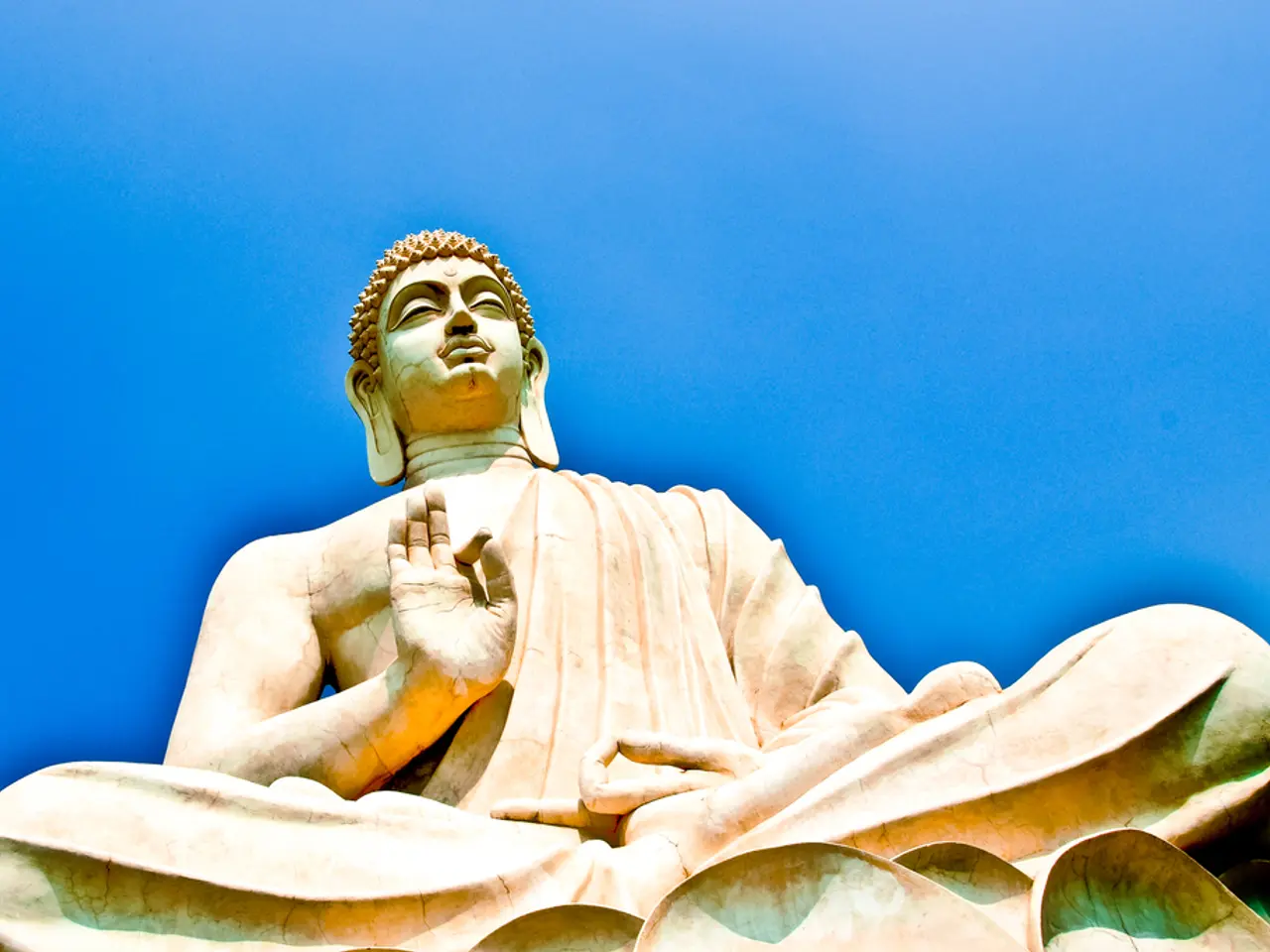Meditation Technique: Vipassana - Its Advantages and Guidelines for Practice
In the serene and tranquil setting of Vipassana meditation retreats, individuals embark on a transformative journey that promises to cultivate self-awareness, empathy, and inner peace. This ancient form of Buddhist meditation, dating back thousands of years, has been popularized worldwide by S.N. Goenka, a renowned teacher who established numerous courses and centres to spread its practice.
Vipassana retreats, lasting 10 days, offer a unique opportunity to delve into the technique, which consists of three essential parts: Sila (Morality), Samadhi (Concentration), and Panna (Wisdom). The retreats are funded by donations, making them accessible to a wide audience.
The retreat rules are designed to provide a conducive environment for introspection and self-discovery. Participants are expected to maintain complete silence for the entire duration, refrain from any communication with other students, and relinquish the use of cell phones, reading materials, writing instruments, and music players. Exercise is limited to walking, and religious practices or other forms of meditation are prohibited.
At the start of the retreat, participants undertake five basic moral precepts of Buddhism, setting the foundation for a focused and disciplined experience. The rules of silence and no communication are put in place to prevent distractions and replicate the isolation Buddha experienced when he sought enlightenment.
For the first three and a half days, participants are introduced to Apanana meditation, a technique that helps one understand the body's natural breath and its connection to the mind. From day four onwards, the focus shifts to Vipassana, where individuals learn how the deep level of the mind is always in contact with sensations and how it is always reacting either with craving or aversion to these sensations.
A Vipassana session involves sitting in a cross-legged position while keeping your back as straight as possible and scanning the body and observing physical sensations as they come and go without trying to control or change them. By developing equanimity towards these sensations, one can unwind the negative conditionings of the mind, resulting in the natural cultivation of positive emotions like compassion and sympathetic joy.
Vipassana is not about achieving a state of absolute stillness or emptiness, but rather about enhancing self-awareness of the mind and body. It requires no particular focus, instead encouraging one to observe the natural flow of consciousness.
Practicing Vipassana can offer a range of benefits, including reduced symptoms of depression and anxiety, better stress management, improved self-confidence, enhanced self-awareness, better empathy, improved interpersonal skills, response inhibition, reduced temper, improved sleep state, higher serotonin and melatonin levels, gamma-ray brain activity linked to happiness, and more.
For those who find it challenging to commit to a 10-day retreat, shorter courses and even online courses are available. Vipassana beginners are advised to practice for as long as they can, even if it's just 10-15 minutes, to experience the transformative power of this ancient practice.
Whether you're seeking inner peace, self-awareness, or a deeper understanding of yourself, Vipassana meditation could be the journey you've been looking for.








